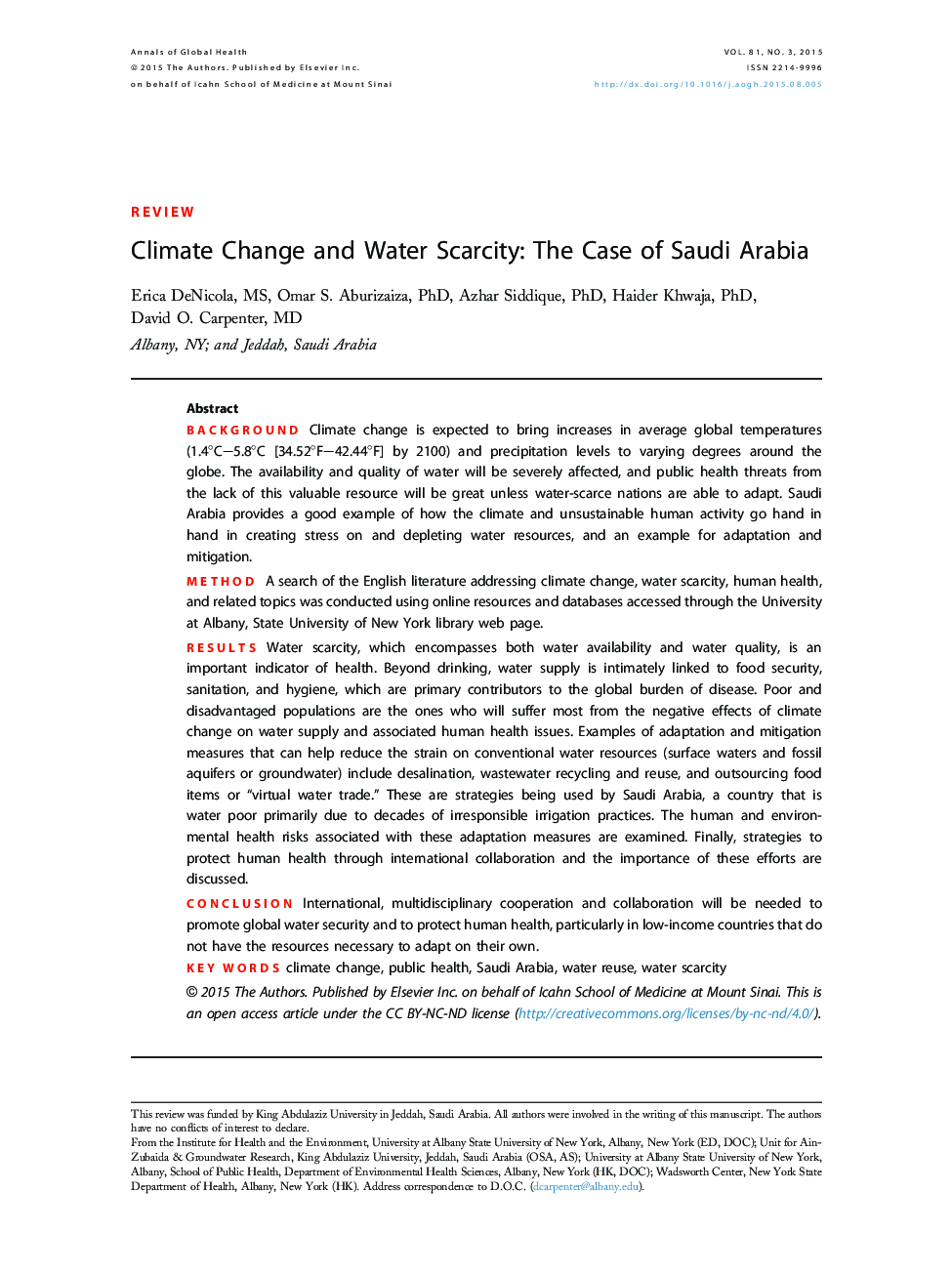| کد مقاله | کد نشریه | سال انتشار | مقاله انگلیسی | نسخه تمام متن |
|---|---|---|---|---|
| 3446098 | 1595434 | 2015 | 12 صفحه PDF | دانلود رایگان |
BackgroundClimate change is expected to bring increases in average global temperatures (1.4°C–5.8°C [34.52°F–42.44°F] by 2100) and precipitation levels to varying degrees around the globe. The availability and quality of water will be severely affected, and public health threats from the lack of this valuable resource will be great unless water-scarce nations are able to adapt. Saudi Arabia provides a good example of how the climate and unsustainable human activity go hand in hand in creating stress on and depleting water resources, and an example for adaptation and mitigation.MethodA search of the English literature addressing climate change, water scarcity, human health, and related topics was conducted using online resources and databases accessed through the University at Albany, State University of New York library web page.ResultsWater scarcity, which encompasses both water availability and water quality, is an important indicator of health. Beyond drinking, water supply is intimately linked to food security, sanitation, and hygiene, which are primary contributors to the global burden of disease. Poor and disadvantaged populations are the ones who will suffer most from the negative effects of climate change on water supply and associated human health issues. Examples of adaptation and mitigation measures that can help reduce the strain on conventional water resources (surface waters and fossil aquifers or groundwater) include desalination, wastewater recycling and reuse, and outsourcing food items or “virtual water trade.” These are strategies being used by Saudi Arabia, a country that is water poor primarily due to decades of irresponsible irrigation practices. The human and environmental health risks associated with these adaptation measures are examined. Finally, strategies to protect human health through international collaboration and the importance of these efforts are discussed.ConclusionInternational, multidisciplinary cooperation and collaboration will be needed to promote global water security and to protect human health, particularly in low-income countries that do not have the resources necessary to adapt on their own.
Journal: Annals of Global Health - Volume 81, Issue 3, May–June 2015, Pages 342–353
